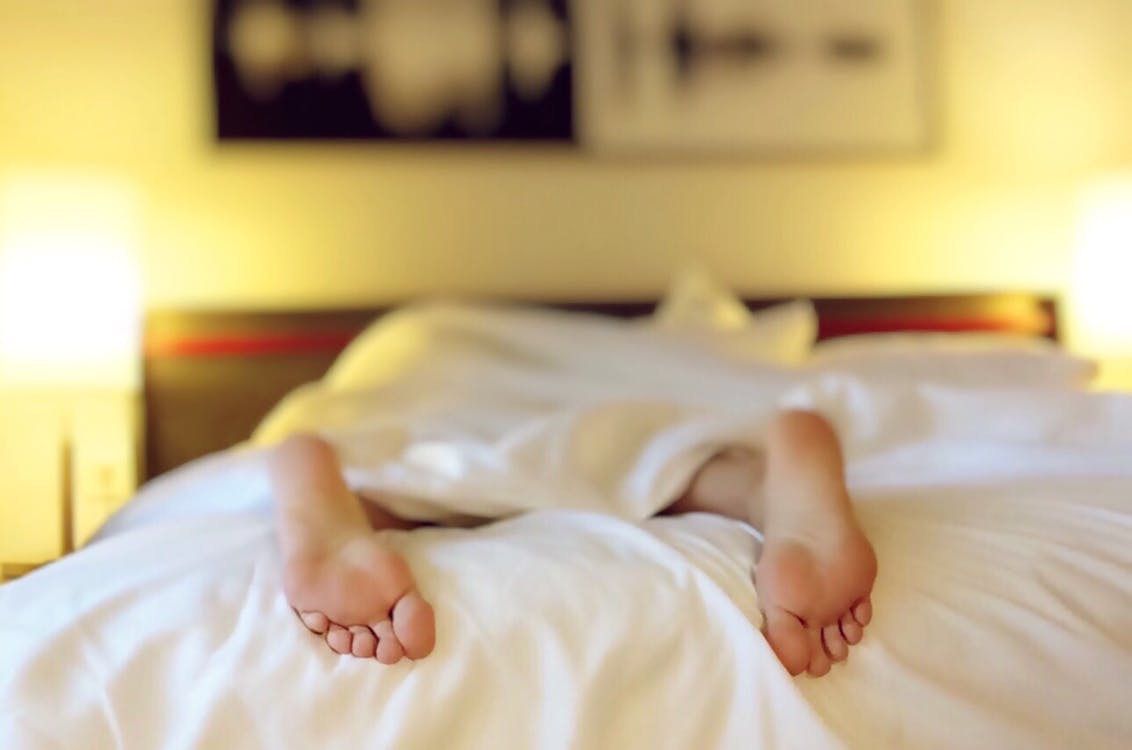The holiday season brings back nostalgic feelings for many of us — Christmas songs on the radio, gatherings with friends and family, and relaxing evenings in front of the fireplace. However, for many, the holiday season can be quite stressful as they try to juggle travel, shopping, and other responsibilities.
For others, the season can even be a time of heightened depression. As noted by WebMD, there are several factors that can contribute to holiday sadness, including stress, financial worries, loneliness (particularly after the death of a loved one), and concerns over unrealistic expectations or the over-commercialization of the season.
These overwhelming emotions can even cause those who don’t consider themselves to be depressed to experience unhealthy stress responses, such as frequent headaches, bouts of insomnia, or difficulty controlling eating and drinking habits.
Regardless of the severity of one’s depression or anxiety during the holiday season, there is no denying that it can significantly limit your ability to enjoy this time of year — which can make it especially hard to keep up with everything your family has planned.
While there are many factors that can play a role in these heightened feelings of depression, one contributing issue that cannot be overlooked is sleep apnea. The complex relationship between sleep apnea and depression is well worth looking into. Taking steps to mitigate your sleep apnea with the help of CPAP therapy could have a huge difference in making your holidays merry and bright.
How to Know When You’re Depressed
 It’s normal for everyone to feel sad or “down” at certain points in life. The death of a loved one, the loss of a job, or other stress factors can easily contribute to periods of sadness. However, when feelings of depression and hopelessness linger over the course of several weeks or months, there is a high chance that the person in question has developed clinical depression.
It’s normal for everyone to feel sad or “down” at certain points in life. The death of a loved one, the loss of a job, or other stress factors can easily contribute to periods of sadness. However, when feelings of depression and hopelessness linger over the course of several weeks or months, there is a high chance that the person in question has developed clinical depression.
Depression will often start out as something that “only” affects an individual’s thoughts and emotional state, but it can quickly impact all aspects of their well-being. Someone suffering from depression will lose interest in hobbies and favorite activities. They may become more socially withdrawn or more easily agitated or irritated in their interactions with others. Mood swings and feelings of apathy may occur. Feelings of worthlessness or guilt are also quite common — even when such feelings aren’t justified.
Depression will also cause the individual to have less energy. They may feel sluggish and fatigued during the day, or have trouble concentrating at work or school. The heightened stress and anxiety that are often associated with depression can cause trouble sleeping, or result in unhealthy changes to appetite. Both weight gain and weight loss can result from these subsequent behavioral changes. Depression is even considered to be a contributing factor to heart disease.
While certain life events can lead to depression, it is important to note that genetic factors, such as a family history of depression or a chemical imbalance, can also lead to depression. Depression can occur as a direct result of the medications you take to manage other health issues.
If you suffer from sleep apnea, the frequent interruptions to your sleep each night could also be directly contributing to your depression.
How Are Sleep Apnea & Depression Connected?
 While the connection between sleep apnea and depression is not yet entirely clear, studies have consistently found a strong correlation between the two conditions. Obstructive sleep apnea is the most common type of sleep apnea. It occurs when the throat muscles relax during sleep, collapsing the airway and cutting off the flow of air. This temporary interruption to breathing will cause the sleeper to wake up gasping for breath.
While the connection between sleep apnea and depression is not yet entirely clear, studies have consistently found a strong correlation between the two conditions. Obstructive sleep apnea is the most common type of sleep apnea. It occurs when the throat muscles relax during sleep, collapsing the airway and cutting off the flow of air. This temporary interruption to breathing will cause the sleeper to wake up gasping for breath.
These interruptions can occur quite quickly, so that the person isn’t even aware that they work up during the night. Quite often, a bed partner will be the one to notice the issue. In extreme cases, an individual may experience over 30 sleep apnea episodes per night.
The interruptions to sleep that occur as a result of sleep apnea episodes can heighten the body’s stress levels, increasing feelings of anxiety and the risk of developing depressive symptoms. Much like other forms of sleep deprivation, the poor sleep quality that results from sleep apnea can contribute to fatigue and irritability.
Studies have found that the more severe one’s sleep apnea, the more likely they are to experience depressive symptoms. One study examining individuals who had been diagnosed with obstructive sleep apnea found that 53.9 percent of study participants had anxiety, while 46.1 percent had depressive symptoms.
Because sleep apnea and depression are so closely related, this can sometimes create problems for a diagnosis. As noted in a study published in Sleep Medicine and Disorders, “Many symptoms of depression and obstructive sleep apnea overlap, causing under-diagnosis of obstructive sleep apnea (OSA) in depressed patients. OSA patients can present with major depressive symptoms, but it is highly recommended that the primary care physician should determine the underlying cause of depression rather than simply diagnosing the patient as depressed. Patients with OSA have a higher prevalence of depression than the general population.”
Then there is also the fact that depression itself contributes to sleep problems. For someone who experiences both obstructive sleep apnea and depression, sleep quality can be completely compromised, greatly increasing the risk of the negative health consequences that come from a lack of sleep. While depression won’t cause sleep apnea, it can worsen feelings of fatigue associated with the condition by making it harder to fall asleep in the first place.
If you snore and feel tired in the morning even after a full night’s sleep, there is a good chance you are experiencing obstructive sleep apnea, which may be contributing to your depressive symptoms. Scheduling a sleep study will help you determine if CPAP therapy is needed.
How Does CPAP Therapy Help Fight Depression?
 Due to the interrelated nature of sleep apnea and depression, effectively managing obstructive sleep apnea with CPAP therapy can help reduce symptoms of depression. Using a CPAP machine and mask provides forced air pressure that keeps the airways open throughout the night, greatly reducing the number of sleep apnea episodes you experience to ensure higher-quality sleep.
Due to the interrelated nature of sleep apnea and depression, effectively managing obstructive sleep apnea with CPAP therapy can help reduce symptoms of depression. Using a CPAP machine and mask provides forced air pressure that keeps the airways open throughout the night, greatly reducing the number of sleep apnea episodes you experience to ensure higher-quality sleep.
Adherence to this therapy program can have noteworthy results for those who experience both sleep apnea and depression. A study reported on by the American Academy of Sleep Medicine examined a patient group in which 73 percent had “clinically significant depressive symptoms at baseline.”
The results: “Clinically significant depressive symptoms remained in only 4 percent of the sleep apnea patients who adhered to CPAP therapy for 3 months (9 of 228 patients). Of the 41 treatment adherent patients who reported baseline feelings of self-harm or that they would be ‘better dead,’ none reported persisting suicidal thoughts at the 3-month follow-up.”
The study’s authors noted that based on these findings, some individuals who are diagnosed with depression may actually be experiencing complications from their sleep apnea. While this certainly isn’t the case for all instances of depression, it is clear that the sleep apnea itself is a major contributing factor for those with OSA — and that CPAP adherence can dramatically change patient outcomes.
A more recent trial study from Flinders University that examined over 2600 patients similarly found that those who were compliant with their CPAP therapy guidelines experienced significant improvement in symptoms of depression in as little as six months. Even more importantly, the improved mental health status was sustained as trial participants continued to use their CPAP machine. Those with the worst mood scores benefitted the most.
These studies illustrates just how important CPAP therapy adherence can be in staving off symptoms of depression — especially during high-stress periods like the holidays. By limiting interruptions to sleep, CPAP therapy helps prevent triggers of the body’s stress mechanisms. Feeling more rested ensures that individuals have the physical, emotional, and mental stamina to deal with daily responsibilities and challenges.
Following a sleep study, a medical professional will help you determine the air pressure settings that will be needed to help you enjoy a good night’s sleep. They should also evaluate your sleeping and breathing patterns to determine which CPAP mask option will be best suited to your needs.
Additional Ways to Deal With Holiday Stress
 While taking steps to mitigate your sleep apnea is a good start in reducing your risk of the holiday blues, there are several simple things you can do to make the season more manageable. After all, the stress and anxiety that can sometimes come with the holiday season can prove just as disruptive to a good night’s rest as sleep apnea.
While taking steps to mitigate your sleep apnea is a good start in reducing your risk of the holiday blues, there are several simple things you can do to make the season more manageable. After all, the stress and anxiety that can sometimes come with the holiday season can prove just as disruptive to a good night’s rest as sleep apnea.
For example, in an article for Psych Central, Darlene Lancer, JD, MFT recommends a few basic guidelines for reducing holiday stress: “Make plans in advance, so you know how and with whom your holidays will be spent. Uncertainty and putting off decision-making add enormous stress. Shop early and allow time to wrap and mail packages to avoid the shopping crunch. […] Don’t allow perfectionism to wear you down. Remember it’s being together and goodwill that matters. Make time to rest and rejuvenate even amid the pressure of getting things done. This will give you more energy.”
Those who are struggling to get through the holiday crunch should never be afraid to ask for help from family, neighbors, or other acquaintances. Those who are grieving should try to find healthy outlets for their emotions. Suppressing feelings of grief can actually make depression worse.
The holiday season is also a time when many turn outward. This is a great time of year to find ways to serve others, particularly since volunteering has been confirmed to reduce depressive symptoms. Volunteering can increase self-confidence, provide a sense of purpose, help you form new social connections, and help you feel happy. Look for opportunities in your community to lift others — and yourself.
One additional thing to be aware of is the potential that you might suffer from seasonal affective disorder, also sometimes referred to as seasonal depression. Individuals with this condition will typically begin to experience depressive symptoms during the fall, which worsen during the winter but then disappear during spring and summer.
Though the causes aren’t entirely clear, Mayo Clinic notes that the reduction in sunlight during the winter months could disrupt your circadian rhythm, as well as your serotonin and melatonin levels. This results in depressive symptoms that last during most of the winter, and recur each year. If you experience seasonal depression, your doctor may recommend light therapy or that you take medication during this time of year.
If you ever experience suicidal thoughts associated with other depressive symptoms, don’t keep silent. Call 911, go to the emergency room, or call the National Suicide Prevention Lifeline at 1-800-273-8255 for immediate help.
Happier Holidays Ahead
Depression is a complex issue, and depending on what’s causing your symptoms, starting CPAP therapy won’t necessarily cause you to magically feel better. However, the research has consistently shown that there is a connection between untreated sleep apnea and depression. By taking steps to address this mitigating factor so you can enjoy higher-quality sleep, you will feel well-rested each morning and have the stamina needed to get through the holidays.
While purchasing a CPAP machine may seem like a major financial purchase, few things can have a bigger impact on your overall health and well-being. Here at Help Medical Supplies, we know that these purchases can seem quite expensive, especially if you don’t have adequate insurance coverage to help cover the cost of your equipment.
To help reduce your financial stress this holiday season (and always) we offer CPAP machines, masks, and accessories from top brands like ResMed and Philips Respironics at discounted prices. We also provide free shipping on all orders over $89, and purchases over $500 can qualify for affordable financing through CareCredit. You can easily save hundreds of dollars on your equipment purchase!
With the right CPAP equipment, you will be able to take control of your sleep apnea and get the quality rest you need each night. This will leave you far better prepared to face whatever the holiday season might throw your way.

